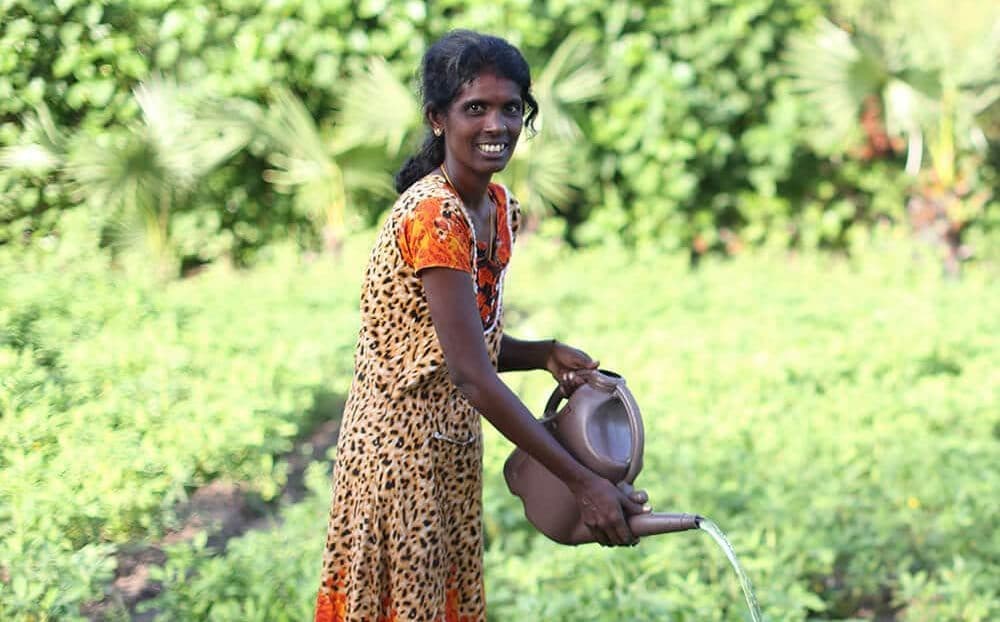A Budget for the Farmer

Earlier this month, the Sri Lankan government released a draft budget which will be approved in the coming weeks. It is designed to address some of Sri Lanka’s most pressing issues, including many that will be all-too-familiar to development organisations working in Sri Lanka and diaspora organisations working internationally.
Some of the initiatives have really resonated with me, and I want to briefly share some of my initial reflections with you.
Investing in the small The first thing that struck me about this budget is the investment in the small things. The expenditure proposal in Annexure 2 of the budget, for example, provides for milk for school children, home dialysis machines and rabies prevention programmes. Of course, it also deals with the ‘big ticket’ items, but there is a real sense that people are at the heart of many of these priorities.
It can be all too easy to get caught up in the abstract and forget about the small things that make peoples’ lives better on a day-to-day basis. This is something that I have really found in Palmera’s work: that at the end of the day, people really just want to secure the small things in life. They want clean water. They want toilets. They want their children to go to school. They want an income that lets them meet their daily needs. We should never underestimate the big difference that investing in the small can make, and this is a commitment that Palmera shares with the Sri Lankan government.

Investing in farmers The second thing that stood out for me is the government’s support for the agriculture sector in this budget. One of their specific goals is to improve the performance of the agriculture, fisheries and plantation sectors, with the aim of increasing “productivity with the infusion of technology and change in systems, which will result in higher yields and better quality of products” (p. 6). The Central Bank of Sri Lanka shares this view; indeed, they see agriculture as a key driver for future growth.
This is particularly heartening, because our Village2Markets programme has seen us work closely with farmers to increase their productivity. In the village of Thervipuram B, for example, we have already seen groundnut productivity increase by an average of 60% – and some farmers have increased their yield by as much as 120%. In the dairy sector in this village, we have introduced and helped to manage high-breed cattle; by doing so, we’ve seen a three-fold improvement in productivity. This has also been supported by our Killinochi youth vet programme – we have trained 30 talented young community practitioners in artificial insemination to help improve the quality of cows being bred across the region.

These aren’t particularly sexy initiatives – talk of artificial insemination does tend to put a dampener on things. But we really believe that investing in the agriculture sector is one way in which we can move from giving hand outs to a hand up. The investment, technology and training that Palmera has provided in villages all over Sri Lanka has given farmers the opportunity to become increasingly self-sufficient and to make a reliable income. We look forward to seeing the government’s support make for an even more sustainable and profitable sector, which brings new opportunities to Sri Lanka’s farmers.
Connecting villages with markets The third thing that I was pleased to see in the draft budget was a specific goal to link farmers to the market (p. 43). Palmera shares this commitment to help connect owners of small businesses with the financial products offered by banks. We believe that creating profitable opportunities through quality improvement, training and community development represent some of the more powerful ways to move villages from dependence to dignity.
Charities have their place in emergencies and critical situations, but long-term development requires a different approach. That’s why we developed Village2Markets, a seven-pillar programme that has at its core the goal of increasing income and savings while reducing vulnerability. We recently made our entire Playbook available – you can check it out here if you’re interested in finding out more about how our model works.

Interested in any of our projects or campaigns? Want to find out more about Palmera? Drop me an email at [email protected] – I’d love to hear from you.
Until next time,
Abarna
